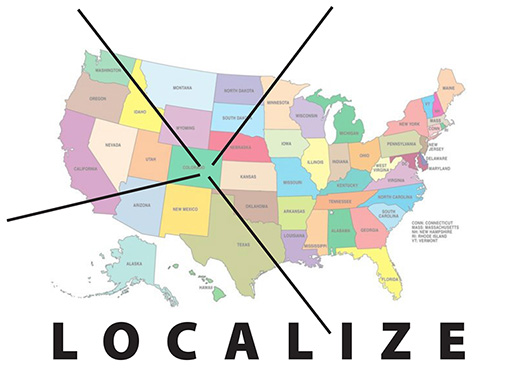Last week we had a quiz about some often confused (no, not by you!) words. The answers were provided, so here is a little discussion on why the answers are what they are:
Hold tightly onto the (reigns, reins), or you will be thrown off the horse!
There are three words pronounced the same way. Rain, which is weather and a noun or verb; reign, which means to rule (verb), but can often be used as a noun: the King’s reign. Then there are the pieces of leather on the horse: rein.
Do you know the (principle, principal) rules of chess?
Did you get this one, my trick question? There are four words that sound the same, and three of them are spelled the same. Principal can be money, like your mortgage principal. Principal is also the person who runs the school. Principal also means primary or most important (adjective) or the most important one (noun). Principle means a rule or ethic. In the question, I already have the word rule, so principal is describing the rules as the most important ones, thus spelled principal.
Children’s pajamas are always (inflammable, nonflammable).
Tricky one here. Flammable and inflammable mean the same thing: able to catch fire. It is only nonflammable that means the opposite.
She lives a little (farther, further) down the street than you do.
Farther refers to distance. Further means any longer: I don’t want to discuss this further. Sometimes there is truly a fine line between them.
I made an (illusion, allusion, elusion) to Shakespeare in my speech.
Although elude is a word (to avoid or escape the attention of), elusion is not. An illusion is something that isn’t there (and illuse is not a word). Allude is a verb and allusion the noun, meaning a reference to something.
She always seems to be (averse, adverse) to our plans.
These words are both adjectives. Averse is being against or opposed to something. Adverse means unfortunate: These are definitely adverse weather conditions for sailing.
She said, “(All right, Alright), I will go with you.
No matter what the sentence is, the answer is all right. Alright as one word is slang and has the same meaning.
The (number, amount) of students has increased in the past year.
This pair of confused words is the cousin of less and fewer. Amount is used with things that cannot be counted or singulars. Number is used for plurals and things that can be counted: The amount of traffic has increased. The number of cars has increased.
I have a new pair of (canvas, canvass) sneakers.
While you might wear your canvas shoes when you canvass, canvass means to solicit sales or answers to a survey, etc., in a neighborhood.
Do they even sell (stationery, stationary) to write letters on?
Stationary is the one related to place. Both stationary and place have a’s. Stationery is used to write letters. Stationery and letter have e‘s.
I (shined, shone) my shoes yesterday.
Both answers are okay, but shined is preferred when there is a direct object. I shined my shoes as the sun shone.
The sun (shined, shone) all day yesterday.
See above.
He is the (soul, sole) person in the room who is over 30.
Soul means that part of you that is not your body. The other soles are all spelled the same way: the only, the fish, and the bottom of your foot.
Are you (supposed to, suppose to) sign in first?
Suppose to is incorrect. The correct modal verb phrase is supposed to.
Did you get a (warrantee, warranty) with your new television?
Warranty is the paper. Warrantee is the person who gets it.
(Whoever, Who ever) even goes to gym these days?
Whoever is some person. If you can put a word between who and ever and it makes sense, they are separate words: Who on earth ever does that any longer.
I will give the last muffin to (whoever, whomever) asks for it.
If there was any answer you missed, I bet it was this one. It looks as if the answer should be whomever, as it comes after the preposition to. However, it is not the object of to; it is the subject of the noun phrase whoever asks for it. Every verb in a sentence needs a subject (unless it is a command, where the subject might be implied). What is the subject of asks? Must be whoever. Whomever is used as an object, not a subject.
I feel (bad, badly) about losing the contest.
I know. Lots of people want to say badly, but bad is the correct answer. Feel is a linking, or sensory, verb here. It connects I and bad. Such verbs take adjectives, not adverbs. Badly is an adverb, and adverbs are used with action verbs: I sew badly. So if you use feel as an action verb here (which it can sometimes be), I feel badly means that your fingertips aren’t doing a good job
I plan to publish a (semimonthly, bimonthly) newsletter that comes out the first and third weeks of every month.
If you are publishing two times a month, as the sentence says, it is semimonthly. Bimonthly usually refers to once every two months, although many people do use it to refer to twice a month.
The (peddles, pedals) on this bicycle don’t work correctly.
You might pedal around town peddling magazines, but the things on your bike are pedals.
Please come visit me in my new house (sometime, some time).
Sometime is some future time. Some time means an amount of time: Do you have some time to help me?
If you go (towards, toward) the library, you will get to the new school.
Either answer is fine. The Americans usually leave off the s. The British use the s.
He paid only a small fine for his (venal, venial) traffic offense of parking in the space for too long.
I am quite sure I have never used either of these words. Venial means able to be forgiven, minor. Venal means able to be bought off: The venal judge was removed from the bench after taking bribes.
If you think I am going to clean up that mess you have another (think, thing) coming.
Surprisingly (at least to me), the correct phrase is another think coming.
(By and large, By in large), this is a great book.
The correct phrase is by and large, although some people say by in large, or at least it sounds that way, probably because that is what they heard when someone said it.
She has (deep seated, deep seeded) religious beliefs.
They sit deeply somewhere, but not in the garden. They are seated. This idiom means firmly established.




